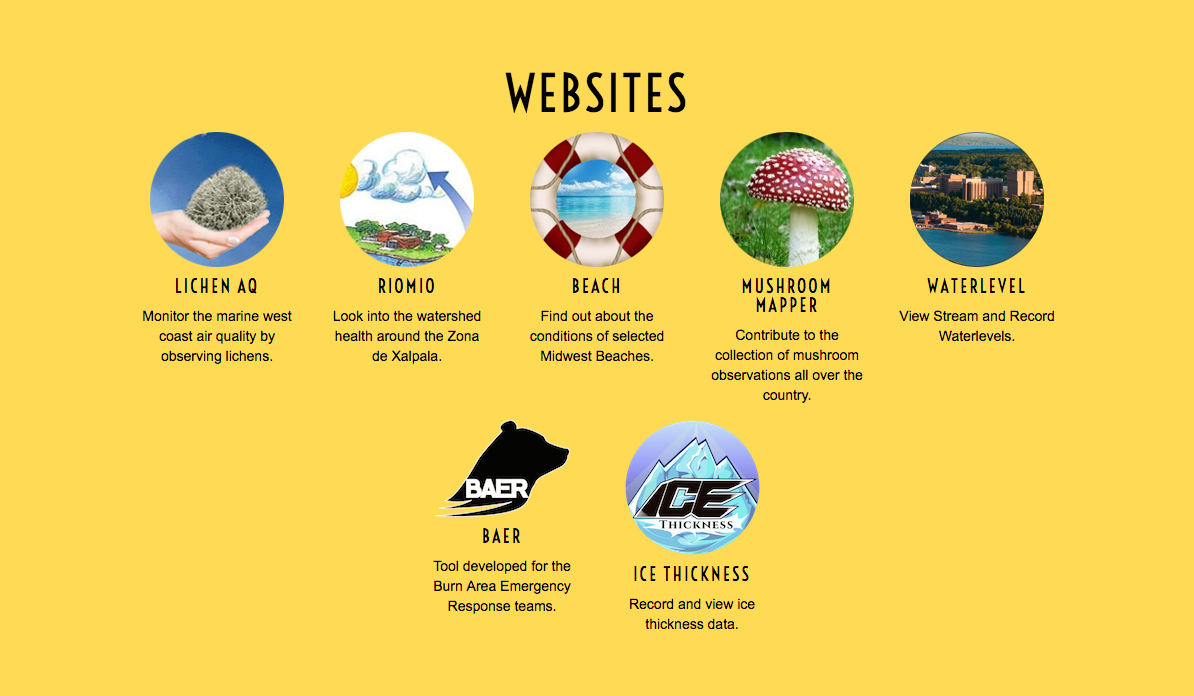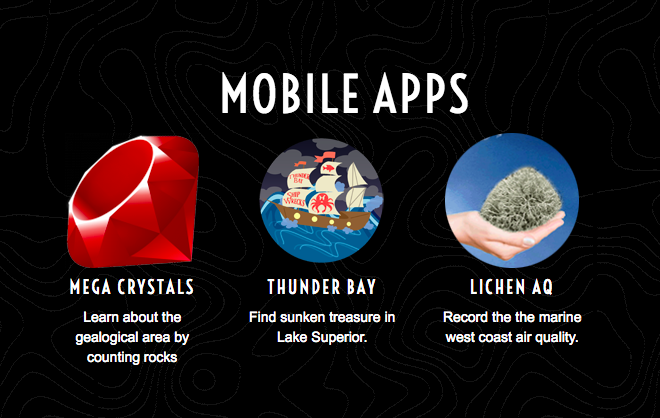We Build Mobile Applications to Aid Scientific Research

Science and citizen-science mobile applications aid scientists and common citizens to efficiently collect field data. Citizen-science applications are a means for scientists to collect more data from locales and during times that may be accessible to many citizens but not to scientists. The applications also are an opportunity for citizens to learn about the science by being in engaged in the science.
Citizen-science mobile applications can encourage citizens to explore their environment and study environmental issues. A citizen-science project can be the focus for classroom instruction. The mobile apps facilitate field trips. The apps organize student observations and aid in the evaluation of student observation.
A well design application is more than a convenient and automated data collection technique. It can package and organize the data for the citizens and scientists. An application can also automate visualization of the data and make the data comprehensible to citizens.
How We Create Mobile Apps
Science and citizen-science applications have many forms. They can represent:
- Observations
- Interviews
- Dialogues between citizens and scientists
- Tracks and transects measurements
- Time or proximity notices or reminders
Science and citizen-science application can take advantage of common functionality on mobile devices:
- GPS location
- Device time or clock
- Photographs and videos
- Audio recording
- Text entry with custom keyboards
- Accelerometer or motion sensing
- Ambient light
and less common functionalities:
- Ambient temperature
- Atmospheric pressure
- Other bluetooth or NF enabled devices
The Citizen Science Program at Michigan Tech

Michigan Tech’s Mobile Environmental Citizen Science project began with a National Science Foundation grant, CI-TEAM Demo: Environmental CyberCitizens: Engaging Citizen Scientists in Global Environmental Change through Crowdsensing and Visualization. Computer Science, Psychology and Humanities students design, develop and evaluate the apps through a collaboration of classes from the three disciplines. The students work directly with scientists to determine the needs and requirements for the apps sponsored by the scientists. The students design the user interface and present the designs to the scientists for review. By the end of the collaboration, the implemented prototype apps are evaluated by testing with undergraduate, high school and middle school students.
Students have developed Android and web based apps. Currently, we are developing offline enable web apps. Offline enabled web apps take advantage of HTML5 proposed standards to cache the app on the device, access the device sensors for collecting data, and storing the data on the device. The data is to later upload to a web server. Offline enable web apps have the advantage that they are cross platform, working on many makes and models of devices. Offline enabled web apps also have the advantage that app upgrade and modifications are automatic and immediately on the users’ devices. Also, implementation of the apps is simplified because only web coding is required instead of coding for each device type.
Some recent apps we have worked on are:
- Mushroom Mapper — for locating and classifying mushroom sightings
- Roya Risk — for informing coffee growers of their risk of Roya infestation
Interested in Working With Us?
Scientist Sponsorship
Scientists with ideas for citizen science apps can support the Mobile Environmental Citizen Science program at Michigan Technological University by sponsoring an app. Scientists work with development teams to refine their app ideas and develop the apps. Contact Robert Pastel at pastel@mtu.edu.
Middle and High School Instructors
Middle School and High School teachers interested in using citizen science app can contact Robert Pastel at pastel@mtu.edu. Citizen science apps mix technology instruction with science instruction. They also make a good focus for field instruction.
Who We Are
Please check out our website at http://citizenscience.cs.mtu.edu.
Project Manager
The Citizen Science project is lead by Dr. Robert Pastel.
Students that have contributed to the development of Citizen Science applications (listed chronologically):
- Cody Adkins
- Alexis Kuprel
- Travis Foster
- Mark Woodford
- Bill Doyle
- Frederick Nolte
- Stephen Radachy
- Kaylee Edwards
- Ryan Doyle
- Mike Nurse
- Mitch Cramer
- Dillon Marvoulis
- Kyle Derosha
- Jon Booth
- Nicole Yarroch
- Sara Martinez Gomez